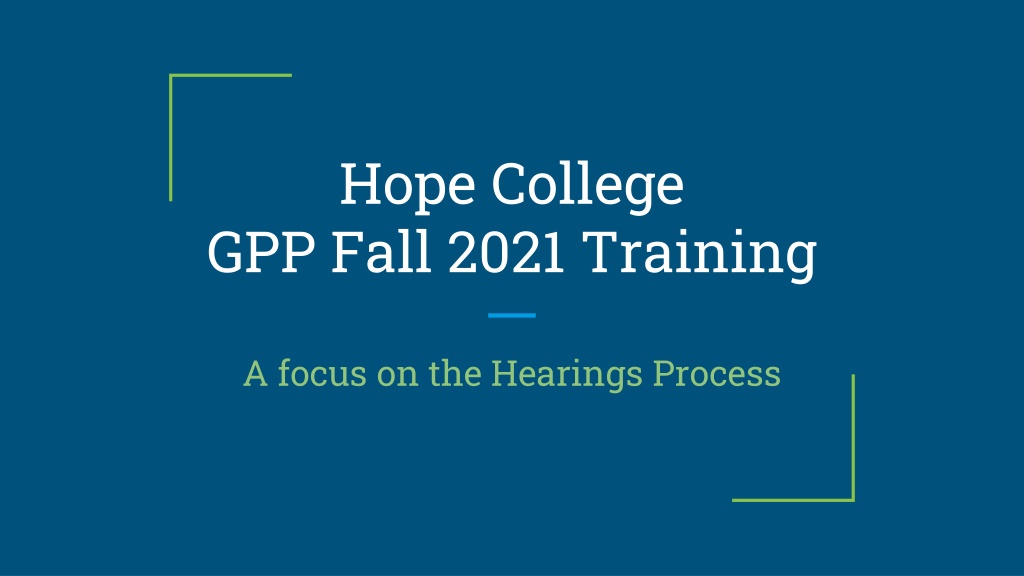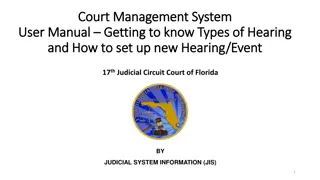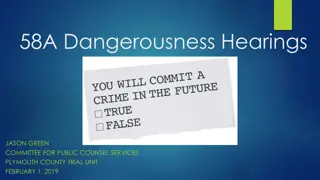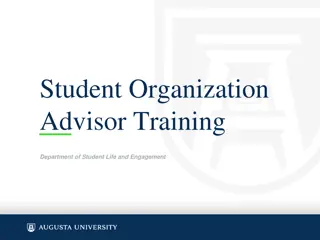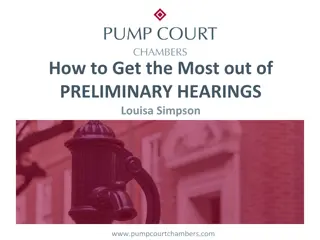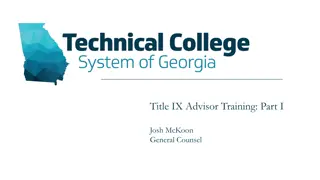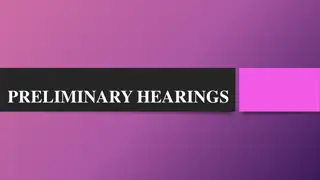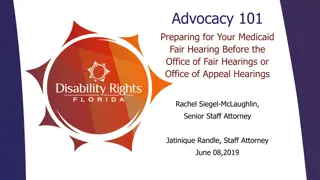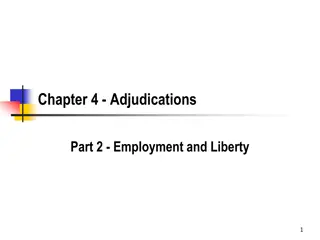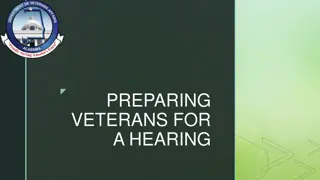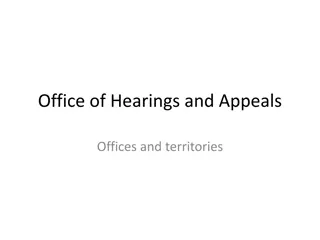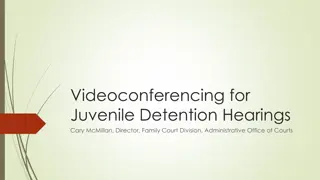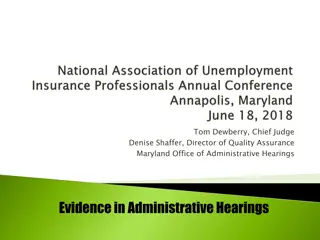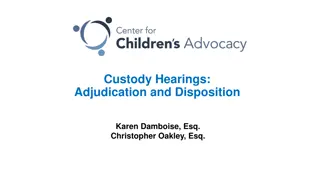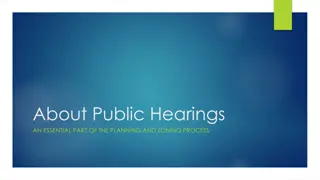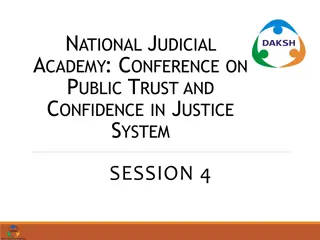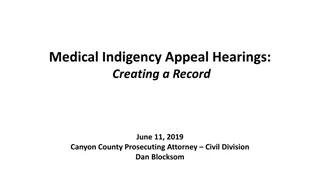Understanding the Hearings Process and the Role of Advisors
This collection of images and text provides valuable insights into the hearings process, focusing on key aspects such as changes in team structure, roundtable discussions, and the role of advisors in hearings. It emphasizes important points like the elimination of opening statements and the significance of cross-examination in resolving disputes. The content also touches upon the chair's role in determining question relevance and the expectations from decision-makers in hearings.
Download Presentation

Please find below an Image/Link to download the presentation.
The content on the website is provided AS IS for your information and personal use only. It may not be sold, licensed, or shared on other websites without obtaining consent from the author. Download presentation by click this link. If you encounter any issues during the download, it is possible that the publisher has removed the file from their server.
E N D
Presentation Transcript
Hope College GPP Fall 2021 Training A focus on the Hearings Process
Updates Office Title Change Addition of Lyonel to the Team / Restructure Team Member changes Review of Interim Policy
Roundtable Discussion 2020-2021 Hearings Observations Questions Concerns/Frustrations What went well? Expectations? Where do you feel improvements are needed? How prepared did you feel?
Whats New Hearing Outline and Script for our process Elimination of opening statements by parties. Opening statements replaced with Overview of case presented by investigator. Parties still have space to share the core concepts of their experience related to the case (likely focused on what the parties don t agree on -what they want to hearing panel to know) Direct Examination Minor modifications to order of information presented.
Role of Advisor in Hearings Advisor s play an Important role to train their advisee in the entire process and expectations involved. Direct Examination of own advisee. Advisors are to ask the other party and any witnesses all relevant questions and follow-up questions, including those challenging credibility. This is the cross examination. The duty to cross-examine need not mean more than relaying that party s questions to the other parties and witnesses. The questions must be considered relevant (as deemed by the chair). Train Advisee to come up with the relevant questions for the cross examination, see them through this part to help state their case.
Role of Advisor in Hearings The DOE broadly explains that cross-examination is especially critical to resolve factual disputes between the parties and give each side the opportunity to test the credibility of adverse witnesses, serving the goal of reaching legitimate and fair results.
Reminder... After a question is asked of a party, the Hearing Chair must determine, before any answer is provided, whether the question is relevant. Examples of non-relevant questions: complainant s prior sexual history, and any party s medical, psychological, and similar records unless the party has given voluntary, written consent. Also, questions that are duplicative or repetitive may fairly be deemed not relevant and thus excluded.
Role of Decision Maker in Hearings Weight the investigation report holds. Ask questions when clarity is needed, deliberate behind closed doors. Rule on credibility, evidence, and if there is a policy violation. Must have a Rationale for decision in writing for outcome letter. Make appropriate sanctions when there is a finding.
Whats New Huge change to Regulations resulting from a District Court challenge to the Suppression Clause, otherwise known as The Cardona Decision. What does this mean? IF a student chooses not to show up at the hearing and/or decides not to respond to questions, we ARE still allowed to consider all evidence and testimony received that involved that party. Examples: If we received a police report, it can be considered even if the officer does not attend the hearing as a witness. If a witness provides us with text messages/photos during the investigation, but then doesn t show up for the hearing, we CAN use them as evidence. (Previously we wouldn t have been able to.) No inferences can be made based on lack or participation in the hearing.
